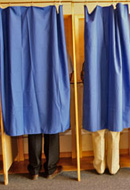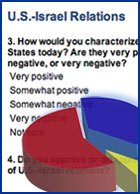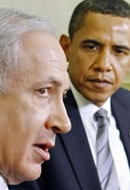The Jewish Vote, Once and Future

This Election Day reminds us, yet again, of the paradox of the “Jewish vote” in American politics. On the one hand, the country’s Jews, despite internal differences and ambivalence in certain quarters, are as dedicated as an American ethnic group can be to the pursuit of a highly particular objective: the safety of Israel. In other ways, however, most American Jews consistently vote against their particular interests—certainly against their economic interests. We do not know how long this pattern will persist. Some see American Jews weakening in their support of Israel as they weaken in their attachment to Judaism as a whole. Others look at the fact that Orthodox Jews make up a growing proportion of American Jews and predict that in the future, the Jews’ reliable vote for liberal, universalist positions may not be so reliable any more. In the meantime, here is a series of varied snapshots of the Jewish vote as it has looked to different writers for Jewish Ideas Daily over the past two years. —The Editors
___________________________
 The Jewish Vote, 2012
The Jewish Vote, 2012
By Michael Barone
The Jewish vote, once pivotal in American politics, is still important, though not as much as it was seven decades ago. Back in the 1940s, Jews cast four percent of the votes in America, twice the percentage they do today. And they cast a much larger share in the state of New York, which in the politics of the first half of the 20th century was a closely fought state in any close presidential election. New York was then also the country’s largest state by far, with 47 electoral votes, and cast 13 percent of the nation’s popular votes (in the 1944 election a full seven percent of the popular votes, one out of every 14, were cast in the five boroughs of New York City).
 A Vote Not Cast
A Vote Not Cast
By Elliot Jager
When my Labor Zionist cousins made aliyah from New York City in the 1950s to an agricultural moshav outside Raanana they cast off comfort, kin, and familiarity for the yoke of pioneering Zionism. It was inevitable that they'd lose touch with the Brooklyn Dodgers, Joe DiMaggio's love life, and the fate of the Third Avenue El. Just getting hold of a delayed copy of the Herald Tribune would have been a coup. And the thought of casting an absentee ballot in the presidential contest between Republican Dwight D. Eisenhower and Democrat Adlai Stevenson did not even cross their minds.
 Polling American Jews
Polling American Jews
By Elliot Jager
What does the predominantly liberal Asian-American community think of President Barack Obama's policies toward China, particularly on the issue of Tibet? Where do America's 2.35 million Muslims stand on Washington's conduct of the war in Afghanistan-Pakistan? It's hard to say. Yet minute shifts in American Jewish public opinion are carefully tracked. Why?
 Obama and Israel: What Now?
Obama and Israel: What Now?
By Benjamin Kerstein
Since the Obama administration's major defeat in the American midterm elections, commentators have been wondering how the new constellation of forces in Washington will affect the president's Middle East peace initiative. Among hopeful partisans of the administration's efforts, the favored position is that little is likely to change. They point out that the executive branch, not the legislature, makes foreign policy, and that the party holding Congress, whether Republican or Democratic, tends to have little say in such matters. In support of this point, they cite the lessons of history, especially the experience of Bill Clinton after the GOP sweep in 1994.
Comments are closed for this article.


